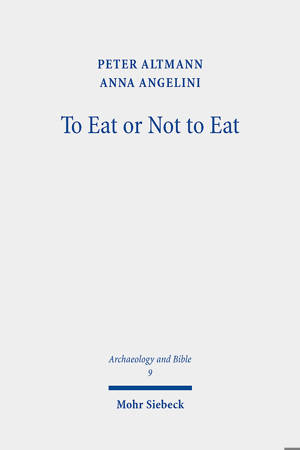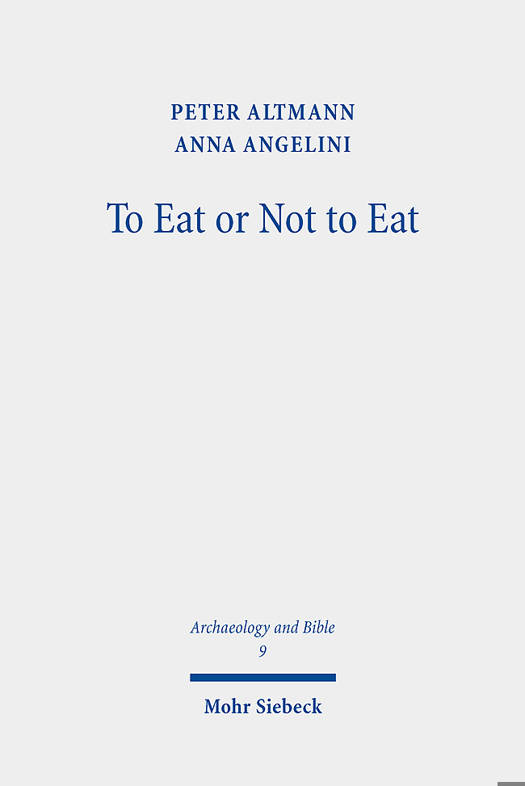
Door een staking bij bpost kan je online bestelling op dit moment iets langer onderweg zijn dan voorzien. Dringend iets nodig? Onze winkels ontvangen jou met open armen!
- Afhalen na 1 uur in een winkel met voorraad
- Gratis thuislevering in België vanaf € 30
- Ruim aanbod met 7 miljoen producten
Door een staking bij bpost kan je online bestelling op dit moment iets langer onderweg zijn dan voorzien. Dringend iets nodig? Onze winkels ontvangen jou met open armen!
- Afhalen na 1 uur in een winkel met voorraad
- Gratis thuislevering in België vanaf € 30
- Ruim aanbod met 7 miljoen producten
Zoeken
€ 98,95
+ 197 punten
Omschrijving
Anna Angelini and Peter Altmann address pivotal issues on the biblical dietary prohibitions and their significance as practices and texts through philological, zooarchaeological, iconographic, and comparative ancient Near Eastern and Greco-Roman lenses. They explore theoretical frameworks adopted in modern interpretation, possible origins in relation to ancient Israelite religion and society, and location in relation to Priestly terminology and Deuteronomic tradition. The authors expand the arc of investigation to the Second Temple reception of the prohibitions in both the Dead Sea Scrolls and Greco-Roman discourses from the first centuries CE. With their foundational studies, they provide an approach to the dietary prohibitions, opening the way for reconstructing their path of development into their present-day contexts.
Specificaties
Betrokkenen
- Auteur(s):
- Uitgeverij:
Inhoud
- Aantal bladzijden:
- 305
- Taal:
- Engels
- Reeks:
- Reeksnummer:
- nr. 9
Eigenschappen
- Productcode (EAN):
- 9783161636578
- Verschijningsdatum:
- 1/08/2024
- Uitvoering:
- Paperback
- Formaat:
- Trade paperback (VS)
- Afmetingen:
- 231 mm x 155 mm
- Gewicht:
- 231 g

Alleen bij Standaard Boekhandel
+ 197 punten op je klantenkaart van Standaard Boekhandel
Beoordelingen
We publiceren alleen reviews die voldoen aan de voorwaarden voor reviews. Bekijk onze voorwaarden voor reviews.











